For a great deal of Black women, self-identity is interlaced with natural hair, and creative styling is an extension of self-expression and self-love. In the most basic sense, Black women’s natural hair is an extension of themselves. Showcasing their natural hair can be a step towards accepting themselves as they are, or simply a personal preference. The point being: it’s not a thing meant to be objectified by onlookers—a sentiment that’s often lost on people who don’t share the same experience. Cue the classic stranger asking if they can “touch” your hair.
These discriminatory experiences and their implicit meanings too often feel glossed over, or are never spoken outside of groups of close friends and family members who “get it.” It’s true that some of this negative attention is the result of flagrant racism, but without the proper knowledge, even the most well-intentioned people may contribute to uncomfortable social environments flooded with insensitive questions and less-than-flattering comments.
To shed some light on these familiar, but ever-present microagressions, I asked 6 women from diverse backgrounds and with different hair types to share their personal stories dealing with discrimination, racism, and unwelcome attention toward their curly and/or textured hair.
Keep scrolling to read about their compelling (and potentially cringe-worthy”> experiences below.
1. Rachel Scarborough
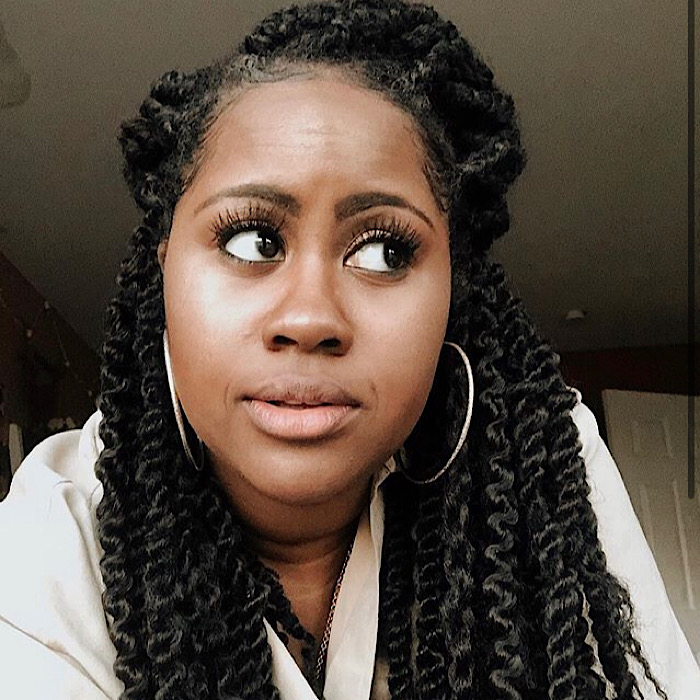
Image Source: @r.hscarborough
“I’ve worked in many companies and many industries over the years and there’s always a learning curve to every office that you walk into. If you pay attention you’ll quickly be able to figure out who the favorites are , the go getters , the loyalists , and the highschool mean girls. Being a Black woman with natural hair in the workforce has always felt like a dance. An unfair balance of appearing ‘unprofessional’ or ‘too edgy’ for simply having a tighter curl pattern coming out of my head than blonde, straight haired Tammy in accounting. I’ve had people I’ve just been introduced to in the office walk around asking about my ‘real hair,’ make passive comments about my ‘ethnic look,’ or straight up just reach out and touch it without a second thought.
One of the most bold encounters to date was at a recent job I held at a nonprofit. The receptionist there was an older woman by the name of Jill. I had been warned by many people in the office that Jill was passive and borderline unfriendly, but we would only exchange greetings in the morning so I minded my business and went on my way. One morning I came to work with my hair in a wash and go style, as I was walking by her desk Jill exclaimed, “Oh my I love your hair, that’s quite nice!” I was shocked, but without breaking a stride or pausing I simply said, “Thanks Jill” and went to my desk. The following week I came in with my hair in braids and Jill looked up again and said, “Wow, that’s intricate.” I said, “Thanks Jill” paused and said, “I like your blouse” and went on my way. The next week I came into the office with my hair laid down and pulled into a pony tail and upon walking past Jill’s desk she blurted out, “Well another style! Do you own a wig shop?!” I stopped, turned to face her and said “I don’t Jill, do you?” She looked taken back. I smiled and continued walking and went to my desk.”–Rachel Scarborough
2. Daye C.
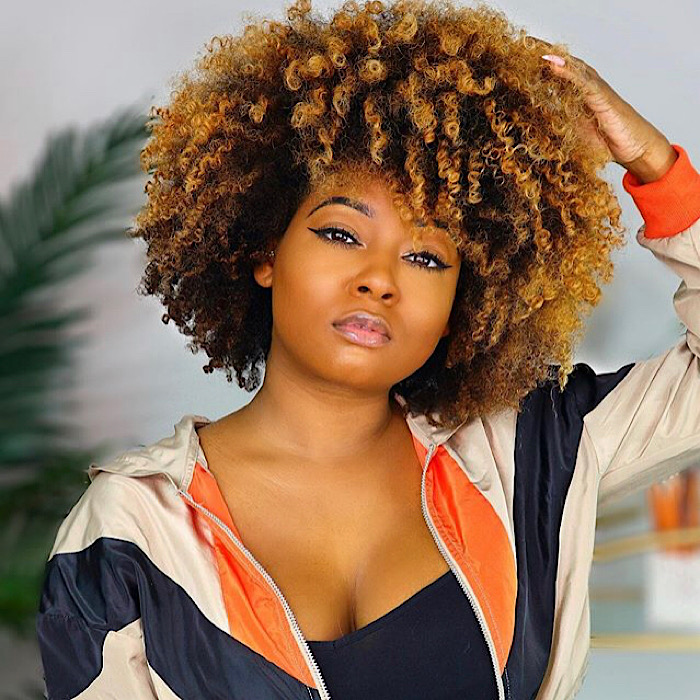
Image Source: @dayelasoul
A brand sent me pictures of an old style and insisted I make my curls look like how they were in those photos, severely heat damaged (much looser”>. And when I explained I could not, they decided they didn’t want to proceed with the collaboration.”–Date C.
3. Jodina Hicks and Courage Walker
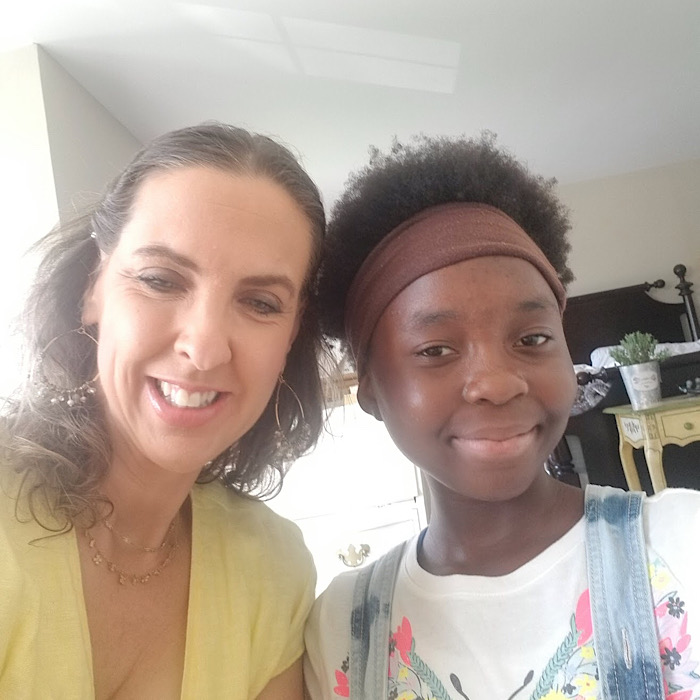
“My daughter is in the fifth grade. Being African (Liberian”> can be a struggle, she doesn’t like feeling different. But I’d been coaxing her to be proud, to be natural, to see her inner and outer beauty, strength, awesomeness. A boy made fun of her hair, and immediately she didn’t want to wear her natural hair anymore. So, I needed to amp up my mom game to get her to love herself, her hair, her skin, and her beauty. Covid helped, being at home, we both started wearing our hair in its natural state. ‘Hair Love’ helped and her aunties helped.
A month ago she got up in the morning, gave me a big hug and said, “You were right, my hair is beautiful! I want to wear it natural again.” As for me, I’ve started letting people see my natural hair even now when it looks like a bush, and I’ve never had so many compliments on my hair! Years of flat ironing, blow drying, hot curlers, perms…..and now I’m also embracing my natural hair, thanks to my daughter’s courage. –Jodina Hicks
4. Angela Onuoha
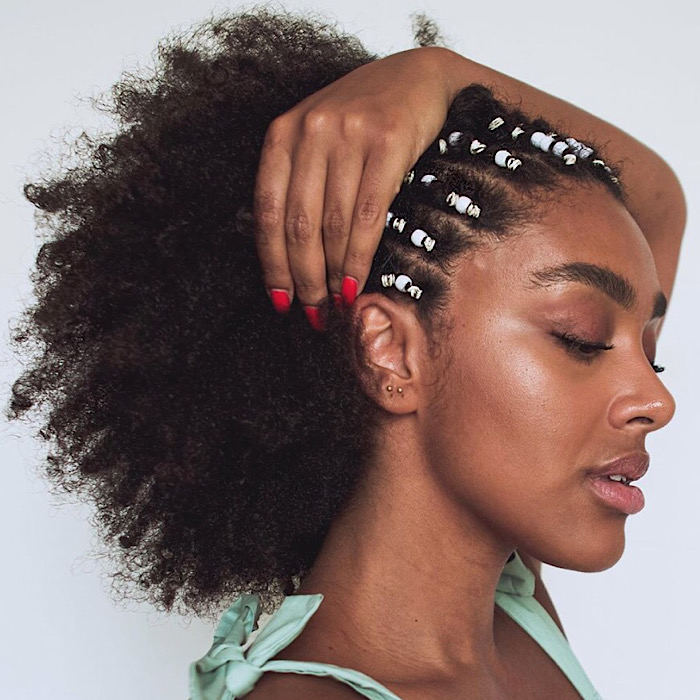
Image Source: @curlbellaa
“I have experienced racism, texturism, and discrimination against women of color and curly and kinky hair types. Going to shoots and not having a hair stylist or make up artist there that has experience with my hair texture or messes up my complexion. I’ve even had this with big campaign shoots. I ended up fixing my hair myself while the other girls with straight hair could sit in their chairs without any worries while getting glammed up. I also feel like there are still a lot of brands that just don’t know what to do with my hair type. Since I’m mixed (my dad is Nigerian and my mom is Dutch”>, people expect me to have type 3b/3c hair. But my hair is coarser than that (type 4a”>. So yes, I’ve been to plenty of PR events where they were launching a hair line with absolutely no product for me, oh yes one: a leave in spray, -__-. I also feel like there is a certain ‘fear’ that brands and people have, not educating themselves on the Black community and the Black consumer. They don’t even realize that we are the community that pays the most money when it comes to their appearance. That’s why I’m so happy to have an online platform where I can truly be myself and like-spirited people can follow me and get their inspiration out of my hairstyles, beauty routine etc.”—Angela Onuoha
5. Shakera Holmes, M.D.
“About a year ago, after having knotless box braids for 6-7 weeks,
I took them out, and wore my natural hair out, which is pretty long at chest length. An older white woman receptionist in our office said, “I just can’t get over how nice your hair is. You should just keep it like that, I like it more than the last style.” Honestly, I don’t need anyone to comment on whether or not they like my hair and what style they prefer on me. If you like it that’s fine, if not–say less.
I always consult a friend of mine, one of the only other Black doctors in our office, about whether or not a hairstyle is “too much” before we come into the work. There’s always that possibility of being addressed because of an ‘inappropriate’ hairstyle or color–although that has no affect on how I do my job.”–Shakera Holmes
6. Taliyah Castro
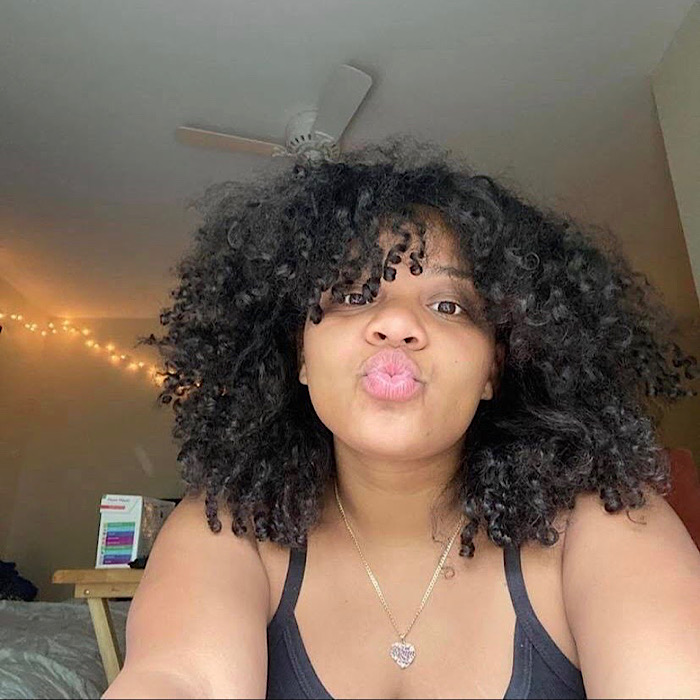
“In the fifth grade, an older woman wanted to touch my hair. Not understanding what that meant, I let her. She said, “It’s softer than I thought, greasy too.” My heart sank. In another instance, another woman told my baby’s father, “That our baby was gonna be a little black baby with nappy hair”, and I instantly cringed. Lots of people say to me: “I don’t know how you take care of that,” ‘How do you deal with that hair?’ ‘How do you tame it?’ African American people even tell me I have “Puerto Rican” hair and I can’t compare my 3b/3c hair to their 4c hair because it’s more Eurocentric. In my opinion, all hair is beautiful. It took me 5 years for my hair to be completely healthy again and I invested too much into my hair to listen to negative comments.”–Taliyah Castro
Beyond every braid, curl, and coil there is a personal story that a woman has with her kinky curly hair. Even though it may “just be hair” to many, a Black woman’s natural hair is a part of her identity and a way she expresses herself. We wanted to shed light on these real experiences that happen to Black women that sometimes get swept under the rug or are only shared with our immediate friends and family.
We hope to continue to share, educate and empower women to embrace their natural crown unapologetically.
Please help to end natural hair discrimination in the workplace and at schools by signing The Crown Act petition here to pass this law in all 50 states.
Do you have any personal stories about your natural curls, coils, and kinks? Be sure to drop them in the comments below.
*Note: Quotes have been shortened and edited for clarity.
